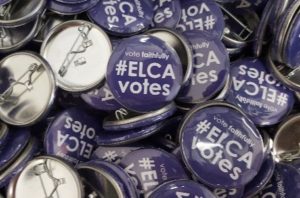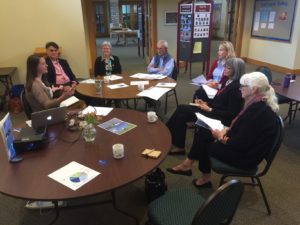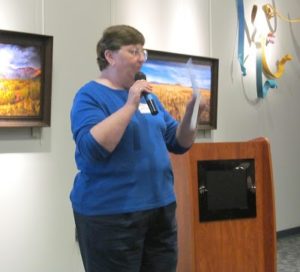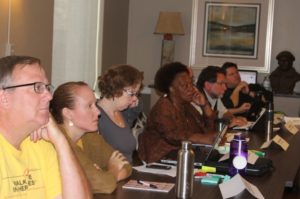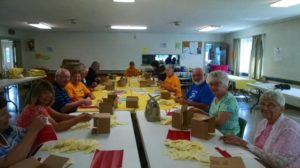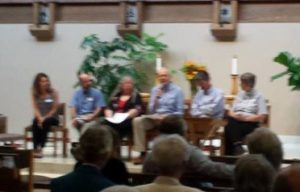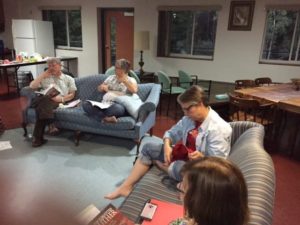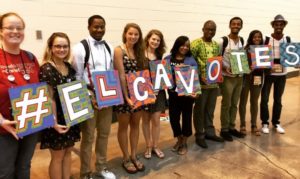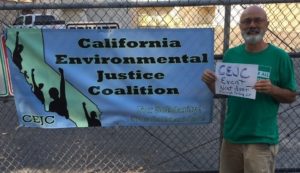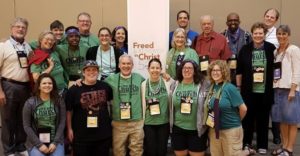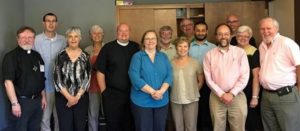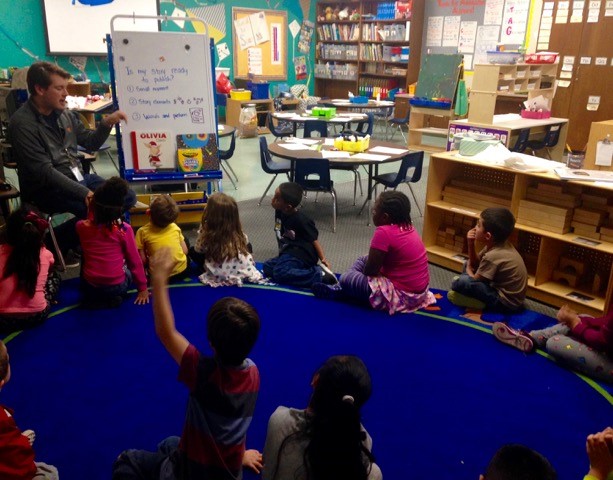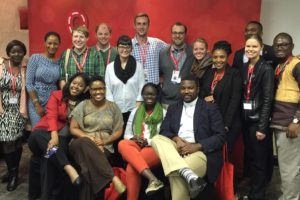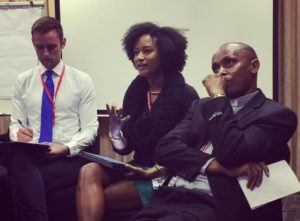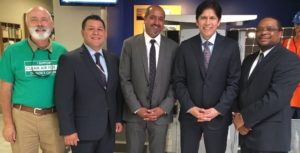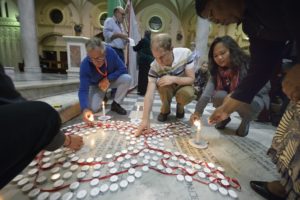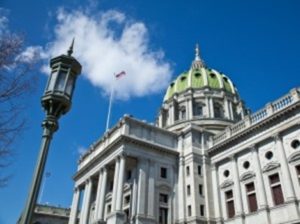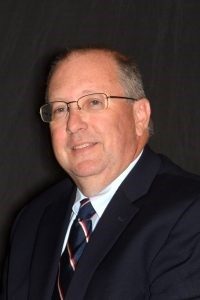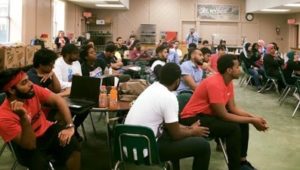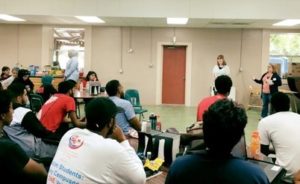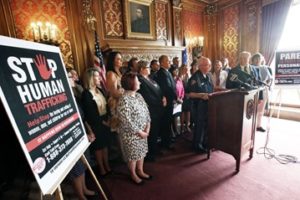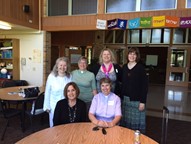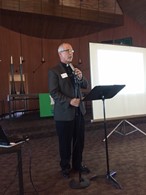Lutherans are taking action across the country! Below you will find our monthly State Advocacy Newsletter. Share with your friends!
ELCA Advocacy Office, Washington, D.C.
The Rev. Amy Reumann, director
This month’s day of fasting and action is Monday, Aug. 21. In August, we focus on programs that provide relief from the effects of environmental degradation on the livelihoods of the poorest among us. As Lutherans, we are called to “seek sufficient, sustainable livelihood for all” and to ensure that all of God’s children are cared for, no matter where they live.
The U.N. Environment Programme (UNEP) “Healthy Environment, Healthy People” 2016 report showed that “in 2012, an estimated 12.6 million deaths globally were attributable to the environment. The air we breathe, the food we eat, the water we drink, and the ecosystems that sustain us are estimated to be responsible for 23 per cent of all deaths worldwide.” To prepare for the day of fasting and action, read the joint ELCA Advocacy and Episcopal Church prayer resources and look for action alerts in the coming weeks!
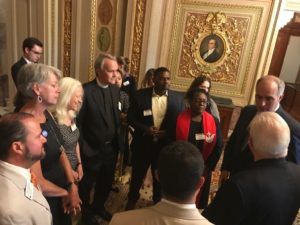 HEALTH CARE: On Friday, July 28, in the early morning hours, the Senate defeated legislation that would have ended health care coverage for millions of seniors, veterans, children and low-income working families. Lutherans sent more than 3,000 emails and calls to their senators, and the impact is now clear.
HEALTH CARE: On Friday, July 28, in the early morning hours, the Senate defeated legislation that would have ended health care coverage for millions of seniors, veterans, children and low-income working families. Lutherans sent more than 3,000 emails and calls to their senators, and the impact is now clear.
Our elected leaders must find bi-partisan solutions to the challenges that face our nation. Bi-partisan proposals to address health care are now being offered in both chambers. ELCA Advocacy will continue to track these developments and encourage August recess activities.
FOREIGN ASSISTANCE: On July 19, ecumenical and interfaith leaders from around the country, including ELCA pastors, came to Washington, D.C., to meet with their members of Congress in support of robust funding for foreign assistance. They shared their stories and faith-inspired convictions for why it is important for the U.S. government to maintain its funding support for humanitarian relief and development assistance. The event was organized by the Interfaith Working Group on Foreign Assistance, of which ELCA Advocacy Office is a member.
IMMIGRATION: At the end of July, the House of Representatives passed a spending package that includes funds to build a southern border wall. This bill is not likely to move forward in the Senate. ELCA Advocacy, alongside other 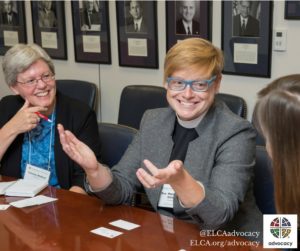 Interfaith Immigration Coalition members, has been advocating against funding the radical expansion of detention and deportations of migrants. This is especially important because the Department of Homeland Security has begun targeting unaccompanied children who have turned 18 and the sponsors of the children for detention for deportation.
Interfaith Immigration Coalition members, has been advocating against funding the radical expansion of detention and deportations of migrants. This is especially important because the Department of Homeland Security has begun targeting unaccompanied children who have turned 18 and the sponsors of the children for detention for deportation.
AUGUST RECESS ACTION: Lawmakers will soon depart Washington, D.C., and return to their home districts for the August recess. This is a great time to meet with your members of Congress face-to-face, ask questions and engage on critical issues happening at the national level. Read more about how you can plan for advocacy this summer at the ELCA Advocacy Resource Center.
Lutheran Office for World Community, United Nations, New York, N.Y.
Dennis Frado, director
KEY PRIORTIES ON SUSTAINABLE DEVELOPMENT GOALS 5 and 16:
On July 14, the Women’s International League for Peace and Freedom held a panel discussion during the forum titled “From Shrinking Spaces to Feminist Movement Building: Key Priorities on SDG 5 and 16 for Sustaining Peace.” The panel focused on the role of women’s rights nongovernmental organizations (NGOs) worldwide in the achievement of the sustainable development goals. Lopa Banerjee Bianco, from U.N. Women, spoke about conservatism and fundamentalism undermining social justice and solidarity and about the current resistance to key aspects of women’s rights.
Panelists included representatives from WILPF (Women’s International League for Peace and Freedom) Sweden, Women for Women International, Women Deliver, and Estudio e Investigation de la Mujer. All panelists spoke of shrinking NGO space in national capacities and the threats of violence toward feminist activists. An emphasis was made on the importance of creating flexible funding towards local NGOs to ensure effective implementation of existing commitments and ensuring the voices of rural and local women are heard.
Mabel Bianco, from the Fundación para Estudio e Investigation de la Mujer in Argentina, discussed NGO involvement with several national review processes, declaring that many countries do not allow for meaningful participation of women’s groups.
California
Mark Carlson, Lutheran Office of Public Policy
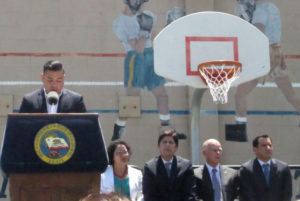
RENEWABLE ENERGY: California Senate President Kevin de León has introduced a plan, SB 100, to reach 100 percent carbon-free electrical energy for the state within 30 years, aiming toward 50 percent by 2030 and 100 percent 2045. There are debates over what constitutes “carbon-free” and over the economics of reaching the last few percentage points, but LOPP-CA and California Interfaith Power & Light support the “aspirational goal” of 100 percent as a means of sending market signals, driving technological innovation, and continuing to grow a green economy.
CARBON EMISSIONS: On July 25, Gov. Jerry Brown signed into law a cap-and-trade carbon emissions reduction policy that modifies and extends the 2006 landmark climate change law, originally supported by LOPP-CA. AB 398 sets a target to make a 40 percent cut from 1990 levels by 2030. LOPP-CA was intensely focused on this issue for several weeks, that included a 2½-hour Sunday afternoon meeting (Saturday invitation) of about 20 nongovernmental organization representatives with Brown, legislative leadership staff, and California Air Resources Board staff. LOPP-CA was the leading faith voice in the Legislature in the days leading up to its final passage. The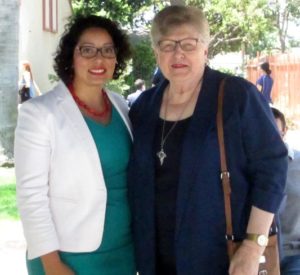 compromise, which required two-thirds of the Legislature to pass, gathered support of several GOP lawmakers – but also came in the face of opposition from several groups on both sides of the aisle. The Washington Post has the full story.
compromise, which required two-thirds of the Legislature to pass, gathered support of several GOP lawmakers – but also came in the face of opposition from several groups on both sides of the aisle. The Washington Post has the full story.
AIR POLLUTION: Policy Council Chair Sharon Heck (pictured (right) with California Assembly member Christina Garcia (left)) represented LOPP-CA at the Bell Gardens bill-signing of a companion air pollution measure, AB 617, which was an essential part of the compromise package, and addresses direct threats to human health from “criteria air pollutants” and “toxic air contaminants.”
Colorado
Peter Severson, Lutheran Advocacy Ministry–Colorado
ADVOCACY VISIT: LAM-CO Director Peter Severson visited Lord of the Hills Lutheran Church in Centennial, Colo., to preach and share about our church’s work in advocacy on July 8-9. Thanks to all those in attendance for the warm welcome!
HUNGER AND THE FEDERAL BUDGET: LAM-CO is partnering with Hunger Free Colorado to advocate against cuts to SNAP (Supplemental Nutrition Assistance Program) in the 2018 federal budget. The version released by the House Budget Committee on July 19 contains many worrisome proposals, all of which will impact the ability of Colorado counties to effectively address hunger. These include cuts to SNAP, TANF (Temporary Assistance to Needy Families), low-income tax credits, and the School Meal Community Eligibility Provision.
Minnesota
Tammy Walhof, Lutheran Advocacy–Minnesota
NEW POSITION AT LA-MN: Lutheran Advocacy-MN is one of three state offices adding a new one-year Hunger Advocacy Fellow soon, funded by ELCA World Hunger.
WOMEN OF THE ELCA TRIENNIAL: Representing ELCA Advocacy, LA-MN Director Tammy Walhof had the opportunity to meet people from around the country, sign them up with ELCA Advocacy, and get them to call U.S. senators about health care (600 alerts were distributed). She also helped AMMPARO lead several “groups of migrants” (Women of the ELCA ladies) on a “dangerous migration” so they could better understand the situation of Central American migrants. (AMMPARO simulation).
LEFTOVER SESSION ISSUES: Gov. Mark Dayton’s line-item veto of the Legislature’s funding to force re-negotiations was deemed unconstitutional (balance of power issues). The governor’s office has appealed. Indications suggest the Legislature’s 11th-hour insertion of Revenue Department funding elimination if the bill was vetoed would likely be unconstitutional but didn’t go to court because it wasn’t tested with a veto. Many legislators of both parties were angered by the insertion, especially since there was no opportunity to read final bills. House Speaker Daudt dropped a lawsuit to prevent legislative salary increases as it would likely be ruled unconstitutional given the constitutional amendment establishing the nonpartisan salary commission.
FEDERAL ISSUES: Oh, my!! Watch for coming action alerts!!
Like and follow us on Facebook, follow us on Twitter (@LuthAdvocacyMN), and check for updates regularly on our website.
New Mexico
Ruth Hoffman, Lutheran Advocacy Ministry–New Mexico
BUDGET CUTS TO HOUSING PROGRAMS: Lutheran Advocacy Ministry-NM joined with other advocates for people experiencing homelessness and for housing for all at a news conference last week. Advocates brought pillows to symbolize the need for more funding for affordable housing and to oppose the proposed federal House budget, which could result in very harsh cuts to federal housing programs.
OPPOSING MEDICAID COPAYS: As a member of the state Medicaid Advisory Committee, LAM-NM Director Ruth Hoffman recently spoke against the state Human Services Department proposal to impose new copays on many Medicaid recipients. A number of studies have shown that copays drive low-income people away from health care and suppress enrollment.
Ohio
Nick Bates, The Faith Coalition for the Common Good
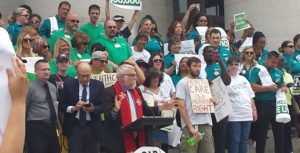 FAITH AND ADVOCACY SUMMIT: The Hunger Network will host its annual summit on Sept. 24 and feature a discussion with ecumenical judicatory leaders on justice ministries followed by a training and discussion on how faith leaders around Ohio can do advocacy and justice in their communities. Each attendee will receive a copy of our new Advocacy Guidebook for Faith Leaders that will be released at the event! Register to attend here: hungernetohio.com/register.
FAITH AND ADVOCACY SUMMIT: The Hunger Network will host its annual summit on Sept. 24 and feature a discussion with ecumenical judicatory leaders on justice ministries followed by a training and discussion on how faith leaders around Ohio can do advocacy and justice in their communities. Each attendee will receive a copy of our new Advocacy Guidebook for Faith Leaders that will be released at the event! Register to attend here: hungernetohio.com/register.
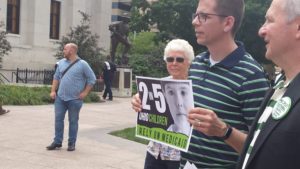 STATE BUDGET UPDATE: Gov. John Kasich signed the budget in the last half hour of June and issued 47 vetoes. Thankfully, Kasich vetoed many dangerous proposals to Medicaid, and the House and Senate, as of this writing, have been unable to override these vetoes. We are thankful for all of those who attended a rally on July 5 calling on House leaders to not override the veto. The rally was emceed by the Rev. Tim Ahrens of First Congregational Church. While the vetoes are good news, we are disappointed that the Legislature was unable to consider new revenue to address poverty in Ohio, expand the Ohio Housing Trust Fund or resources for food banks You can read a full recap of our budget issues here.
STATE BUDGET UPDATE: Gov. John Kasich signed the budget in the last half hour of June and issued 47 vetoes. Thankfully, Kasich vetoed many dangerous proposals to Medicaid, and the House and Senate, as of this writing, have been unable to override these vetoes. We are thankful for all of those who attended a rally on July 5 calling on House leaders to not override the veto. The rally was emceed by the Rev. Tim Ahrens of First Congregational Church. While the vetoes are good news, we are disappointed that the Legislature was unable to consider new revenue to address poverty in Ohio, expand the Ohio Housing Trust Fund or resources for food banks You can read a full recap of our budget issues here.
Pennsylvania
Tracey DePasquale, Lutheran Advocacy–Pennsylvania
STATE BUDGET DEAL: In the waning days of July, with the House already in recess until September, the Senate passed a revenue package that for the first time includes a severance tax on gas drilling but trades it for seriously weakened regulations on the industry and attacks on Medicaid. HB 542 borrows $1.2 billion to fill in a hole left in the 2016-2017 budget. A severance tax on natural gas drillers would generate about $80 million in new revenue in addition to the current impact fee.
LAMPa opposes the environmental protection rollbacks in this budget deal, which effectively strips the Department of Environmental Protection of its ability to regulate the oil and gas industry by requiring it to use third-party contractors to speed up the permitting process, with permits automatically approved if not resolved in a short time frame. It also eases regulations for coal-related manganese discharges within 5 miles of drinking water supplies. The plan also allows oil and gas wastewater treatment facilities to operate under expired permits until 2019, putting drinking-water sources at risk.
As part of budget negotiations, the Senate passed HB59 with provisions imposing work requirements on Medicaid beneficiaries. The provisions open the door to cuts in “nonessential” benefits, including things such as dental, vision and prescription drugs.
LAMPa applauds proposed changes to the School Code that prohibit lunch shaming – in which students who cannot afford to pay or whose account balances are low are denied meals or singled out for embarrassment.
Washington
Paul Benz, Faith Acton Network
STATE ISSUES: Our Legislature has finally adjourned after three 30-day special sessions. Late on the last day of the fiscal year, the Legislature made a bipartisan agreement on the $43.8 billion biennial budget. It was funded by increases in property tax, repealing three tax exemptions, and borrowing from our “rainy day” fund. Much of the revenue increase went to fund public education to fulfill a state Supreme Court ruling. No cuts were made to human service programs, but only minimal increases were funded. Our $4.2 billion capital budget was not passed, which contains critical investments for school construction and affordable housing.
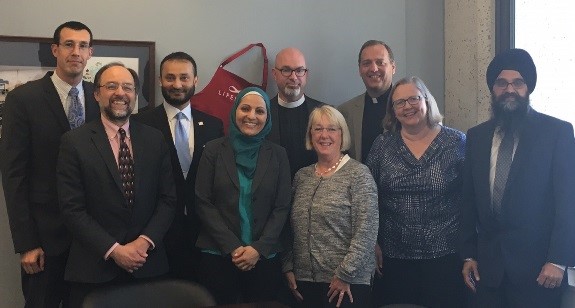 |
FAN was part of a meeting with Sen. Patty Murray that was convened
|
CONGRESSIONAL ISSUES: FAN continues to work with our Health Care as a Human Right coalition, and we are now working on August recess meetings particularly asking for support and co-sponsors of HR 676, the Medicare For All bill. FAN is also monitoring and signing on to the faithful budget letter coming from the interfaith advocacy groups in Washington, D.C.
FAN PROGRAMING AND STAFF UPDATES: We are in the midst of holding annual gatherings for the 200 liaisons to our growing statewide Network of Advocating Faith Communities; our legislative district coordinators; and our 19 geographic clusters of advocating faith communities. These gatherings let us hear about local advocacy efforts, share FAN updates, and talk about how we can be more effective together.
Wisconsin
Cindy Crane, Lutheran Office for Public Policy in Wisconsin
CARE FOR GOD’S CREATION: RE-AMP is a group of environmental advocates that focuses on eight Midwestern states to reduce carbon dioxide emissions. In July, LOPPW was part of RE-AMP’s annual gathering in Chicago. Interesting meeting tidbits: Kenote Keya Chatterje (U.S. Climate Network) said, “We are the first generation to see the effects of climate change and the last to be able to do anything about it.” Study in Toledo – 10 focus groups were held to discuss political candidates and jobs. All participants said they trusted steel and other factory jobs returning more than green jobs. Not enough is known about green jobs. Find them in your state, get specific about describing them, and make them known.
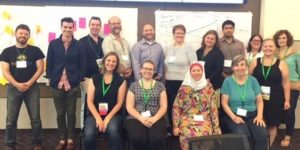 EAST-CENTRAL SYNOD OF WISCONSIN ADVOCACY: The synod just set dates in the winter to hold an advocacy gathering in two locations. The focus will be on refugees, immigration and advocacy, led by Bishop Gerald Mansholt and LOPPW. LOPPW is assisting with the organizing.
EAST-CENTRAL SYNOD OF WISCONSIN ADVOCACY: The synod just set dates in the winter to hold an advocacy gathering in two locations. The focus will be on refugees, immigration and advocacy, led by Bishop Gerald Mansholt and LOPPW. LOPPW is assisting with the organizing.
ADVOCACY RETREAT FOR COLLEGE STUDENTS: LOPPW’s director met with a campus pastor and volunteer to continue to organize a fall overnight retreat. The director had contacted several campus pastors during synod assemblies in the spring and early summer.
HEALTH CARE AND OUR VALUES: In the context of lifting up Washington, D.C., action alerts and using Facebook, we have tried to make our devotionals on the social statements better known to remind people that we have a voice as a church rooted in our values.

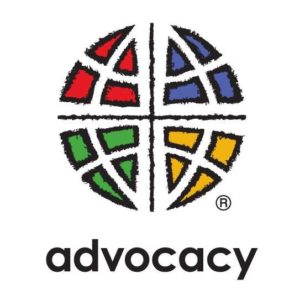

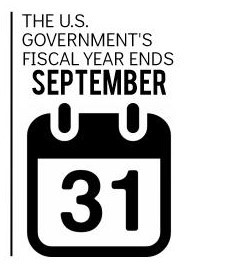
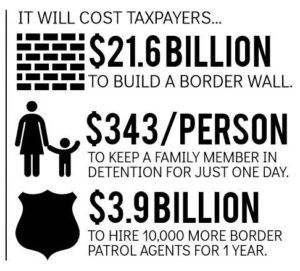
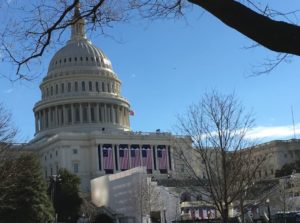
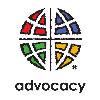
 Increase support for programs that seek to end homelessness and focus on uplifting community members who are most heavily impacted, including seniors, rural residents, LGBTQ youth, ex-offenders seeking re-entry, and low-income families.
Increase support for programs that seek to end homelessness and focus on uplifting community members who are most heavily impacted, including seniors, rural residents, LGBTQ youth, ex-offenders seeking re-entry, and low-income families. 